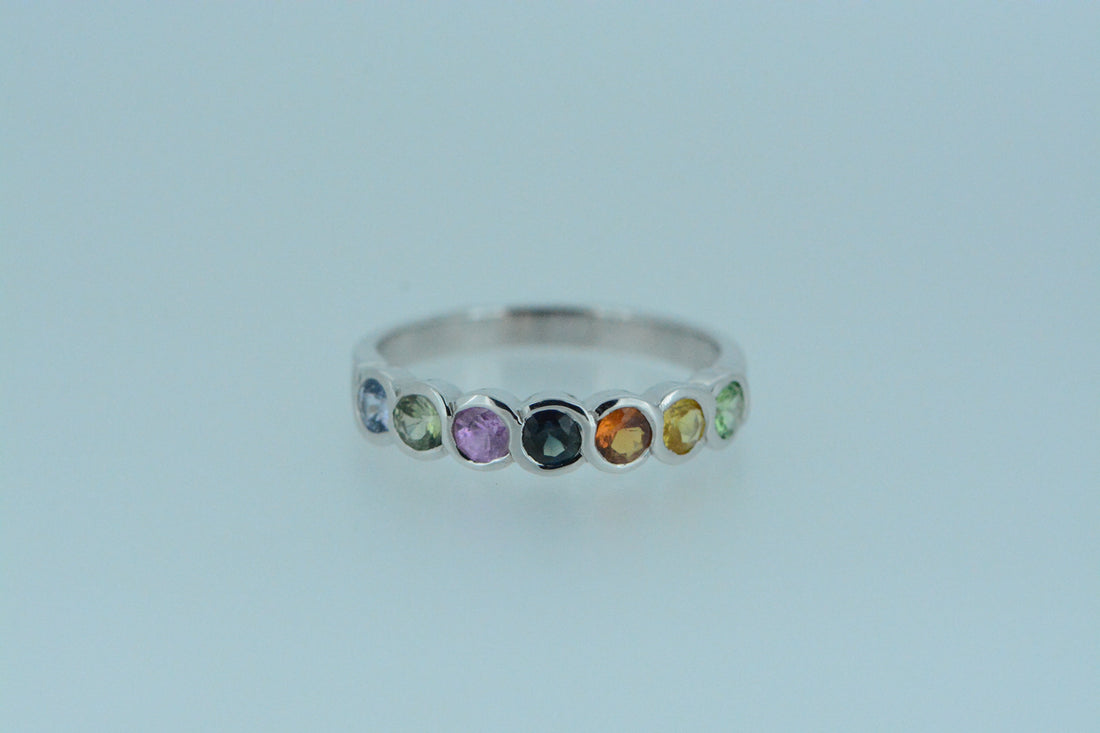
What are the best gemstones for regular wear?
Share
What determines if a gemstone is good for regular wear?
The best gemstones for regular wear is largely based not only on your personal preferences for the visual elements but also the wearability or durability of the gemstone.
What does gemstone hardness mean?
Gemstone hardness refers specifically to resistance to scratching. If one material can scratch another it means that it is a harder material. It does not refer to resistance to chipping or breaking.
10 Diamond
9 Sapphire
8 Topaz
7 Quartz
Looking at the above list of gemstone hardness, you can see that diamond has the highest hardness and can not be scratched by any other gemstone. Quartz with a hardness of 7 for example could be scratched by topaz, sapphire and diamonds because they have a higher hardness rating.
Stones that have a hardness which is lower than 7 on the Mohs scale are more prone to scratching because quartz with a hardness of 7 is present in dust. This means simply wiping dust off any gemstone with a hardness lower than 7 can scratch the stone.
Harder gems like sapphire will maintain their polish better compared to stones that aren’t as hard such as apatite, which will show visible wear faster.
Why does gemstone hardness alone not determine how suitable a gemstone is for regular wear?
When considering the best stones for regular wear we also need to take into consideration:
-
The cleavage
-
The toughness
-
Sensitivities to heat, sweat & chemicals
What does gemstone toughness mean?
Gemstone toughness refers to its ability to resist breaking or chipping. Although diamonds are the hardest gemstone they are also brittle and will still break if smashed by a hammer. Most gemstones are also in fact quite brittle.
What is gemstone cleavage?
Gemstone cleavage refers to areas within a gemstone where the bonds are weaker and therefore making the gemstone more prone to splitting along these structural weaknesses.
So what are the best gemstones for regular wear?
The following gemstones are very good for regular wear: diamonds, sapphires, rubies, tourmaline, topaz, citrine, amethyst, aquamarine, alexandrite & tsavorite.
Although topaz makes it onto this list - its perfect cleavage means that it is best kept in protective settings.
The following gemstones are still good for regular wear however they all have hardness ratings that can be below 7 which means they are more vulnerable to scratches.
Garnet, tanzanite, agate, zircon & peridot.
It is advisable to store them away from other gemstones to ensure they do not get scratched.
.
Which gemstones require special care?
Pearl and mother of pearl.
Pearls being a soft gemstone with hardness between 2.5 and 4.5 makes them vulnerable to scratches as such they require special care:
-
Pearls should be stored separately from your other gems because your other gems can scratch your pearls.
-
Always put your pearls jewellery on after perfumes and hairsprays which can contain acids that will damage your pearls.
-
Wipe your pearls with a damp cloth after wear. Never dunk your pearls in soapy water, wipe with soapy water instead.
-
Do not use ultrasonic or steam cleaners on your pearls because they are heat sensitive.
-
Pearl rings should have protective settings if they do not only use them occasionally.
Last but not least, emeralds get a special mention here because although they have excellent hardness they can also be quite brittle depending on the internal integrity of the stone and are at higher risk of chipping or splitting. As such the following precautions are advised:
-
Emerald rings should have protective settings to shield them from physical blows.
-
Ultrasonic, steam and boiling methods should NOT be used because it can shatter emeralds.
-
Many emeralds will need to be re-oiled periodically to maintain their integrity.
-
Use warm water & a detergent with soft brush to clean emeralds.
